Search titles
Displaying results 1 to 10 of 286.

Uneven Rewards »
Milestones in Labour Economics
Authored by: Alison L Booth
Publication date: 2026
Uneven Rewards brings together major studies of workplace relations and behaviour from the distinguished labour economist Alison L Booth. Over more than three decades, Booth has forged a distinctive intellectual path combining a strong interest in the role of gender and culture on labour markets with acute expertise in data collection, and cognate social science fields and methods.
With her co-authors, Booth examines the effects on men and women of evolving industrial relations’ rules and contexts. She studies the changing gendered and culturally-specific nature of labour markets, and analyses the findings of a set of data-rich social experiments to reveal insights about women’s and men’s behaviour in labour, educational and wider social settings.
Finally, Booth shares new conclusions arising from this extensive body of research. She shows how culture and nurture associated with the upbringing of boys and girls can have profound implications for educational and labour market performance and relative outcomes by gender:
There is no right or wrong place for young women and men to be. What matters is that they are given the opportunity to go where their talents lead them without being thwarted by cultural pressures.
Coming soon
Notify me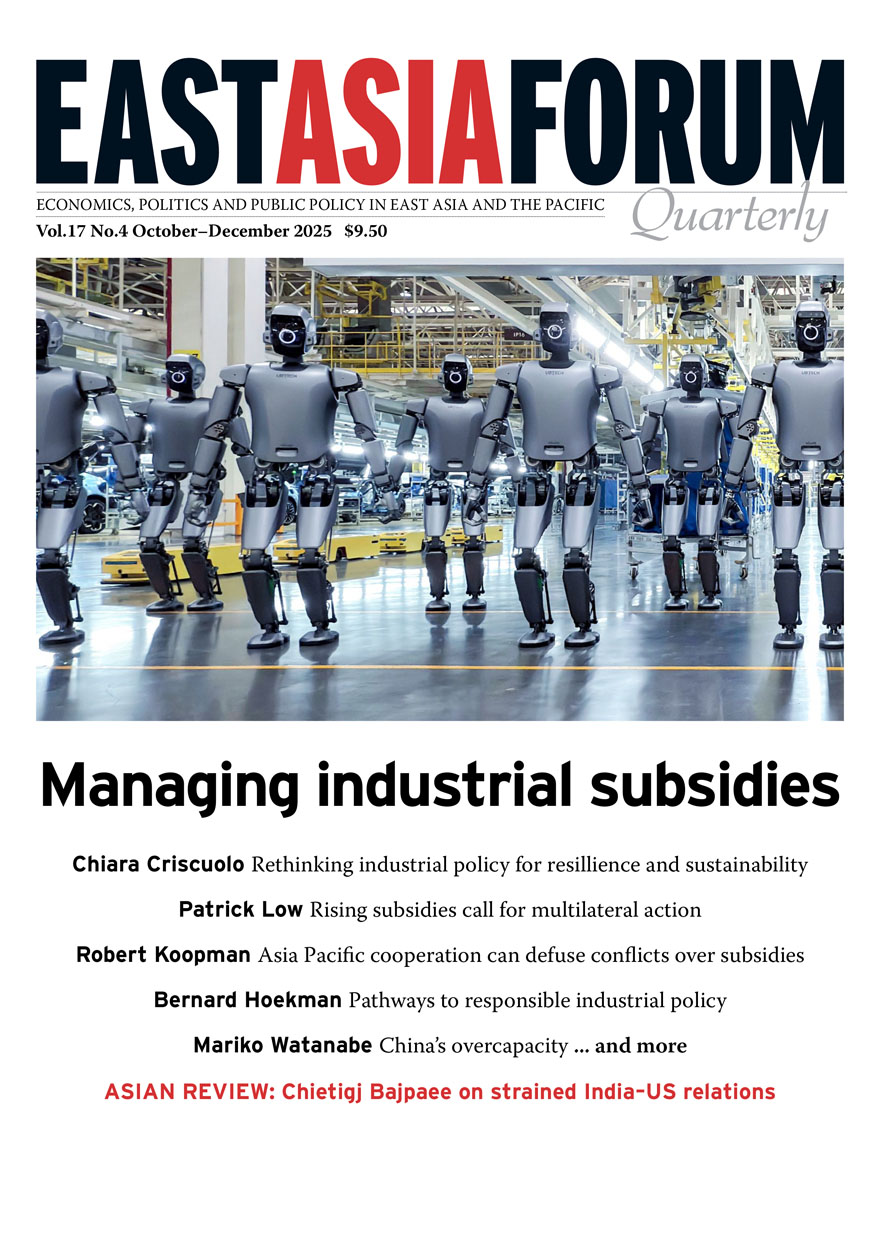
East Asia Forum Quarterly: Volume 17, Number 4, 2025 »
Publication date: December 2025
Industrial policy has returned to the mainstream, with subsidies as an increasingly popular policy instrument of choice. While East Asia is deeply invested in the open global trade regime, multilateral rules are outdated, weakly enforced and ill-equipped to manage the widening gap among countries with unequal fiscal capacity. This issue of the East Asia Forum Quarterly examines the rationale, forms and effects of industrial policy resurgence, identifying both its risks and the conditions for its success. It argues that regional coordination of industrial policy would require greater transparency and peer review, using existing frameworks as well as new plurilateral agreements for that purpose. The region has the platforms and leverage to lead collective efforts to manage industrial policies without undermining the rules-based multilateral order, but whether it can will depend on mobilising the political will.
Download for free
Not available for purchase
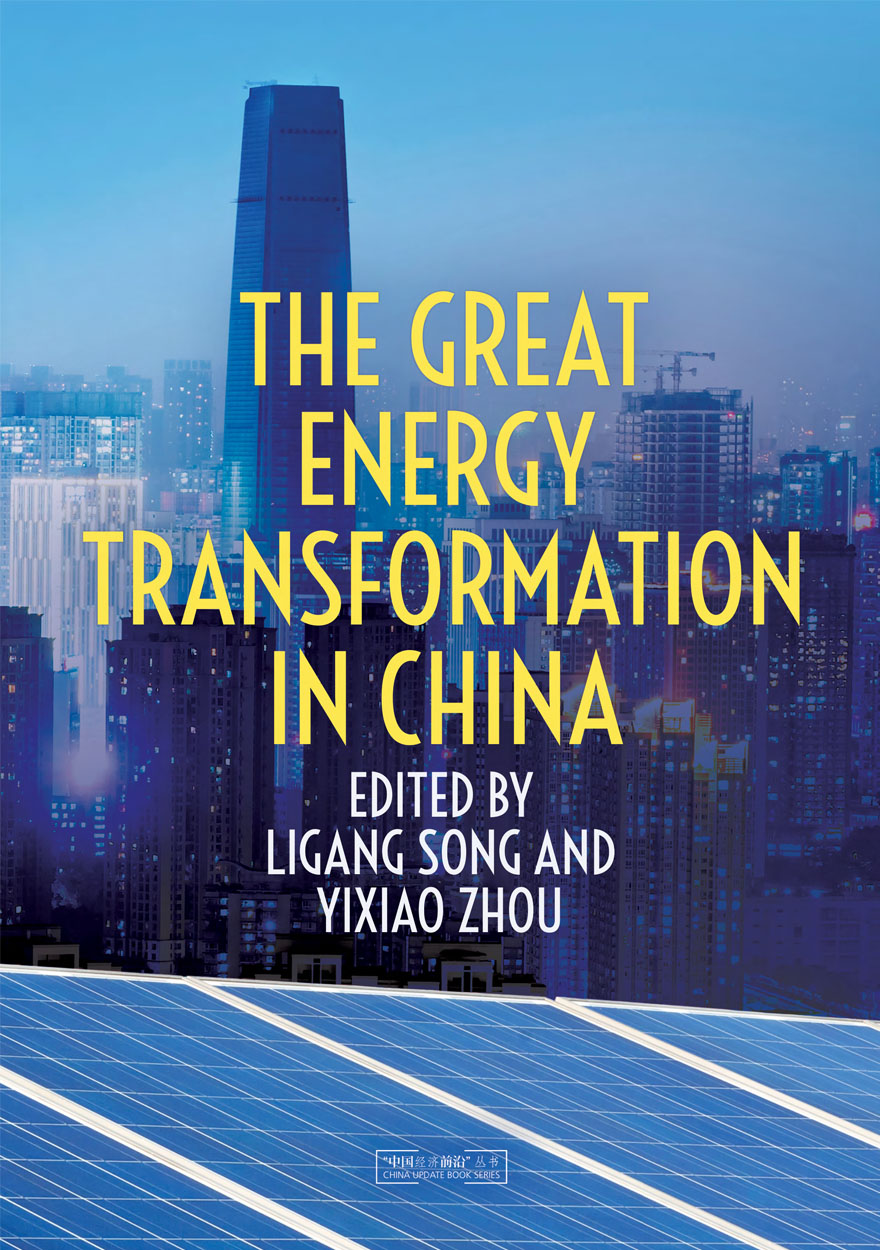
The Great Energy Transformation in China »
Edited by: Ligang Song, Yixiao Zhou
Publication date: November 2025
In 2020, China started the drive to commence a reduction in carbon emissions by 2030 and reach carbon neutrality by 2060, setting in motion a transition to a green, sustainable and clean economy. China has ambitiously developed clean energy alternatives to coal. This transformation encompasses multifaceted strategies ranging from investment in renewable energy and the development of low-emission technologies to more stringent policy regulations on emissions. Renewable energy sources like hydroelectric power, wind, solar and biomass have received substantial attention and investment, with China emerging as a global leader in renewable energy capacity.
In the technology space, China’s transitioning to electric vehicles (EVs) has catalysed the development of a robust EV market, fostering innovation in battery technology and charging infrastructure. China has now become the largest exporter of EVs in the world market. These developments have the potential to materially help curb the world’s carbon footprint and mitigate environmental degradation.
Nevertheless, challenges persist domestically, including the need for grid modernisation to accommodate intermittent renewable energy sources and addressing the socio-economic impacts on coal-dependent regions. In the international market, China’s efforts towards a cleaner and more sustainable energy landscape have helped position it as a leader in sustainable economic development. This could enhance trade of green products, the development of global renewable energy and international investments in energy transformation. However, global trade and investment in green technologies and products are faced with rising geopolitical tensions and trade protectionism. This book discusses China’s achievements in its transition towards renewable energies and identifies new opportunities and challenges for deepening energy transformation in China.
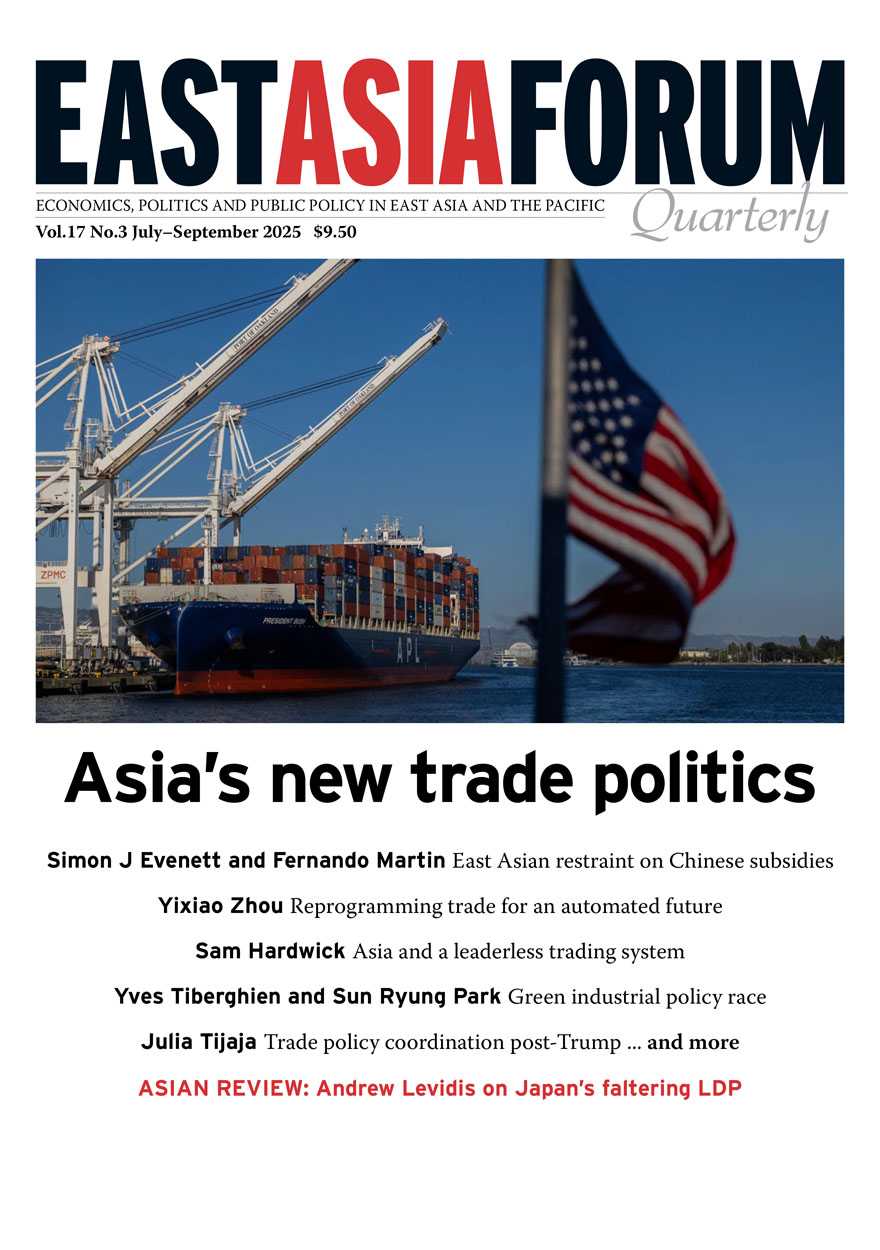
East Asia Forum Quarterly: Volume 17, Number 3, 2025 »
Publication date: August 2025
US protectionism is reshaping Asia’s trade politics. Rising tariffs and unpredictability from Washington are chilling investment, disrupting supply chains and driving governments towards transactional deals that corrode longstanding multilateral rules. This edition of East Asia Forum Quarterly maps the terrain on which Asia must choose between short-term accommodation and long-term growth and resilience. In an increasingly fragmented world, Asia’s best defence is to strengthen institutions to safeguard integration and hunker down behind the multilateral system—while preparing to take a leading role in rebuilding it.
Download for free
Not available for purchase

Struggle, Reform, Boom and Bust »
An Economic History of Papua New Guinea since Independence
Authored by: Stephen Howes, Martin Davies, Rohan Fox, Maholopa Laveil, Manoj K. Pandey, Kelly Samof, Dek Joe Sum
Publication date: July 2025
Since Papua New Guinea’s independence in 1975, economic growth has been slow but volatile, with major changes in economic structure and policies, as well as in politics and governance.
This economic history, written to commemorate the fiftieth year of independence and the first to be produced in some 15 years, divides the half century since independence into four periods: the relative stability but also early struggles of the seventies and eighties; the crises and reforms of the nineties; the boom of the 2000s; and the quiet bust of the 2010s. Two chapters cover each period’s major economic, policy, institutional and political developments. The final three chapters provide an overall assessment of economic performance and policies since independence and link them with its politics and institutions.
The book combines painstaking documentation with original analysis to reveal both the strengths and weaknesses of the PNG economy, and theorises that the country’s hyper-politics and insecurity have combined to produce, and are reinforced by, a weak but stable state, and low and increasingly resource-dependent growth.
Data-driven, frank, insightful and engaging, Struggle, Reform, Boom and Bust is written by an expert team of economists from the University of Papua New Guinea and The Australian National University under the leadership of Professor Stephen Howes, Director of the ANU Development Policy Centre. It is an essential resource for anyone interested in the economy of Papua New Guinea, as well as an important contribution to the literature on the challenges and institutional determinants of post-colonial development.
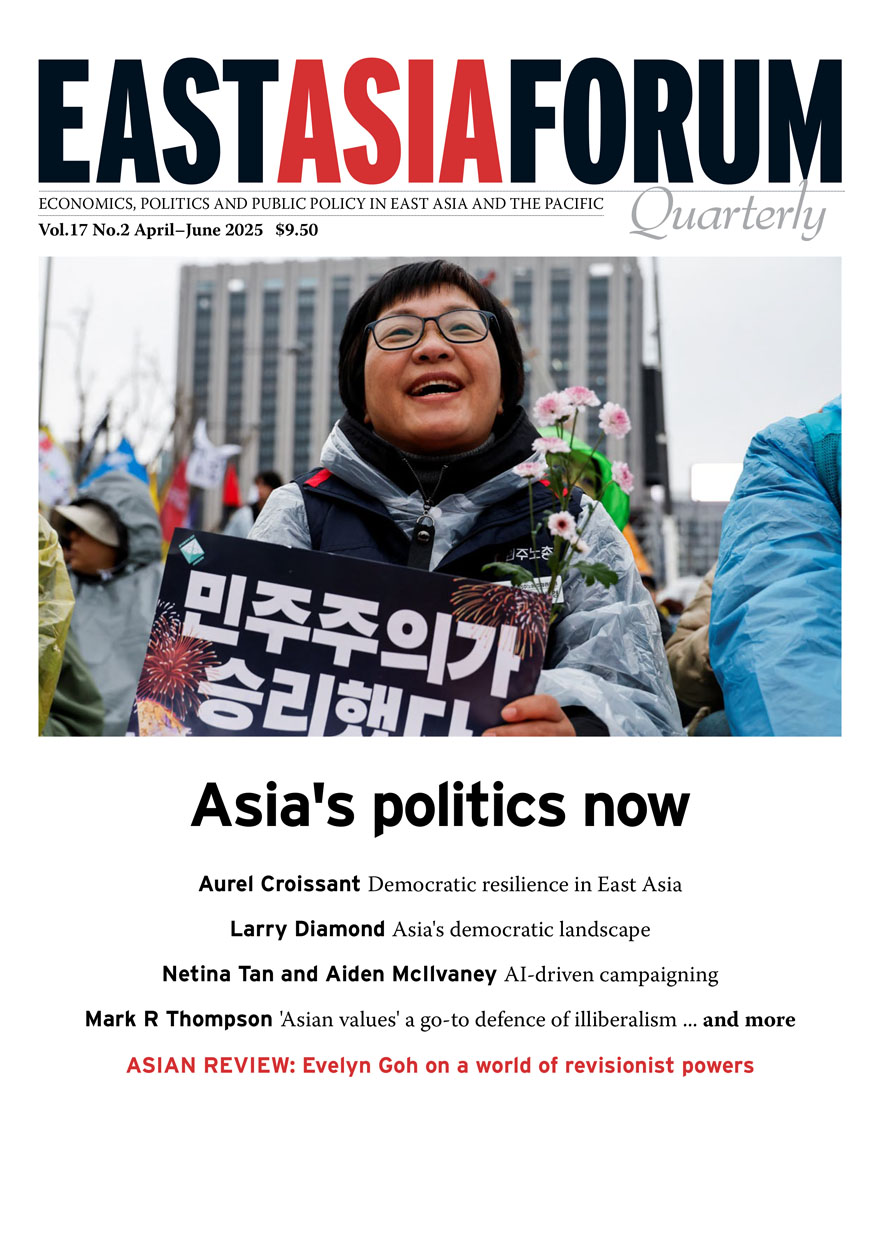
East Asia Forum Quarterly: Volume 17, Number 2, 2025 »
Publication date: May 2025
Asia is home to some of the world’s most diverse political systems—from liberal democracies to authoritarian regimes and hybrid states. As global democracy faces renewed pressure, this edition of East Asia Forum Quarterly explores how political systems across Asia are evolving amid rising autocratisation. It examines why economic development alone cannot explain democratic outcomes in the region and how authoritarian success stories are reshaping debates about governance. With ideological contestation intensifying, Asia is not just adapting to global political trends—it is helping to define them.
Download for free
Not available for purchase

East Asia Forum Quarterly: Volume 17, Number 1, 2025 »
Publication date: March 2025
The global landscape has shifted dramatically since Donald Trump’s return to the presidency in January 2025. His decision to exit the Paris Agreement and impose heavy tariffs has escalated uncertainty surrounding both climate action and the global economic order. This edition of East Asia Forum Quarterly explores how ASEAN and its regional partners can step in to safeguard multilateral trade and climate cooperation, advocating for green trade policies and sustainable investment. The region has the potential to reshape the global response to climate change and maintain economic stability through strategic collaboration.
Download for free
Not available for purchase

China: Regaining Growth Momentum after the Pandemic »
Edited by: Ligang Song, Yixiao Zhou
Publication date: December 2024
The slower growth of the Chinese economy in the aftermath of the pandemic has prompted the Chinese Government to adopt measures to boost domestic consumption and deepen structural reform, with the effectiveness of such policies beginning to be felt. However, China still faces challenges that will affect its growth dynamics down the track. These include the slowdown of its real estate sector, the complex internal and external environments for macroeconomic policy, the high level of income inequality, weak growth in investment by the private sector, negative population growth, high levels of debt, deglobalisation, weakness in the financial sector and equity markets, the inadequacy of its fiscal system and the imperative to decarbonise the economy. China must confront these challenges to maintain growth momentum and achieve higher levels of income and living standards.
The theme of the 2024 China Update book is China: Regaining Growth Momentum after the Pandemic. It discusses some of the challenges and policy issues that are being watched with keen interest by decision-makers and markets alike, including: What are the obstacles to economic growth in the aftermath of the pandemic and how can these be overcome? What are the key challenges and opportunities for China to move to the next level of development against the backdrop of negative population growth? Is it time for a Tax-Sharing System Reform 2.0 to consolidate China’s fiscal position? What are the challenges facing China’s small and medium enterprises? How is China’s business environment faring, and what are the implications for investment? How does China’s urban housing affordability impact its low fertility rate? How will the trade conflict between China and the United States play out regarding semiconductors and other high-tech products? How does China–Africa bilateral agricultural trade impact on African rural transformation?

East Asia Forum Quarterly: Volume 16, Number 4, 2024 »
Publication date: December 2024
The global economy’s trajectory toward instability has been evident since Trump 1.0. A second Trump presidency will likely amplify protectionism, strategic competition and global disorder. This edition of East Asia Forum Quarterly examines how Asia can respond, emphasising the region’s role in defending multilateralism, addressing climate change and ensuring global stability.
Download for free
Not available for purchase
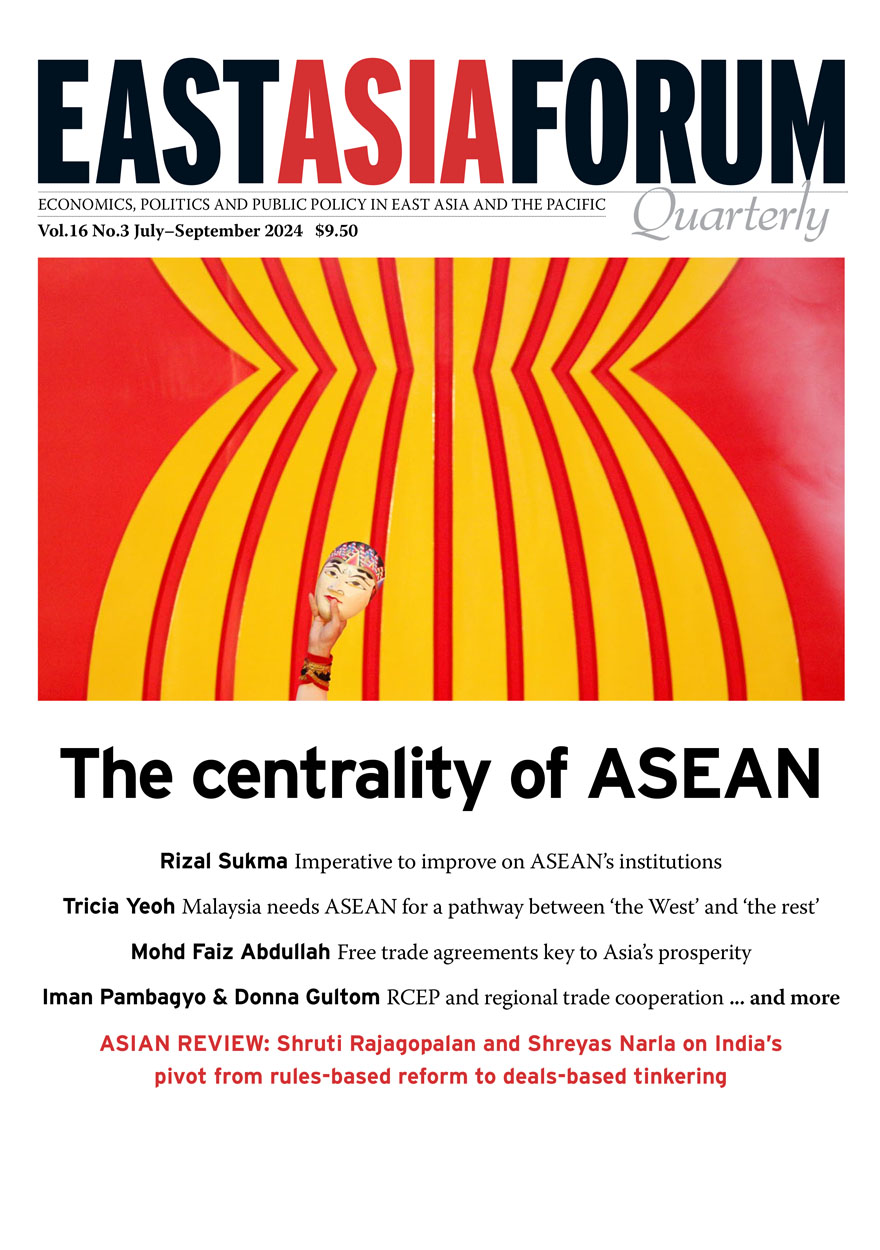
East Asia Forum Quarterly: Volume 16, Number 3, 2024 »
Publication date: September 2024
ASEAN's rise as the cornerstone of regional diplomacy and security in the 1990s may have seemed improbable, but it was crucial. Today, a shifting regional geopolitical landscape challenges ASEAN’s relevance. Great power competition and waning global political commitment to multilateral arrangements threaten its role as East Asia’s 'steering committee'. This edition of East Asia Forum Quarterly explores how ASEAN can maintain its centrality, calling for proactive leadership and stronger regional cooperation.
Download for free
Not available for purchase



